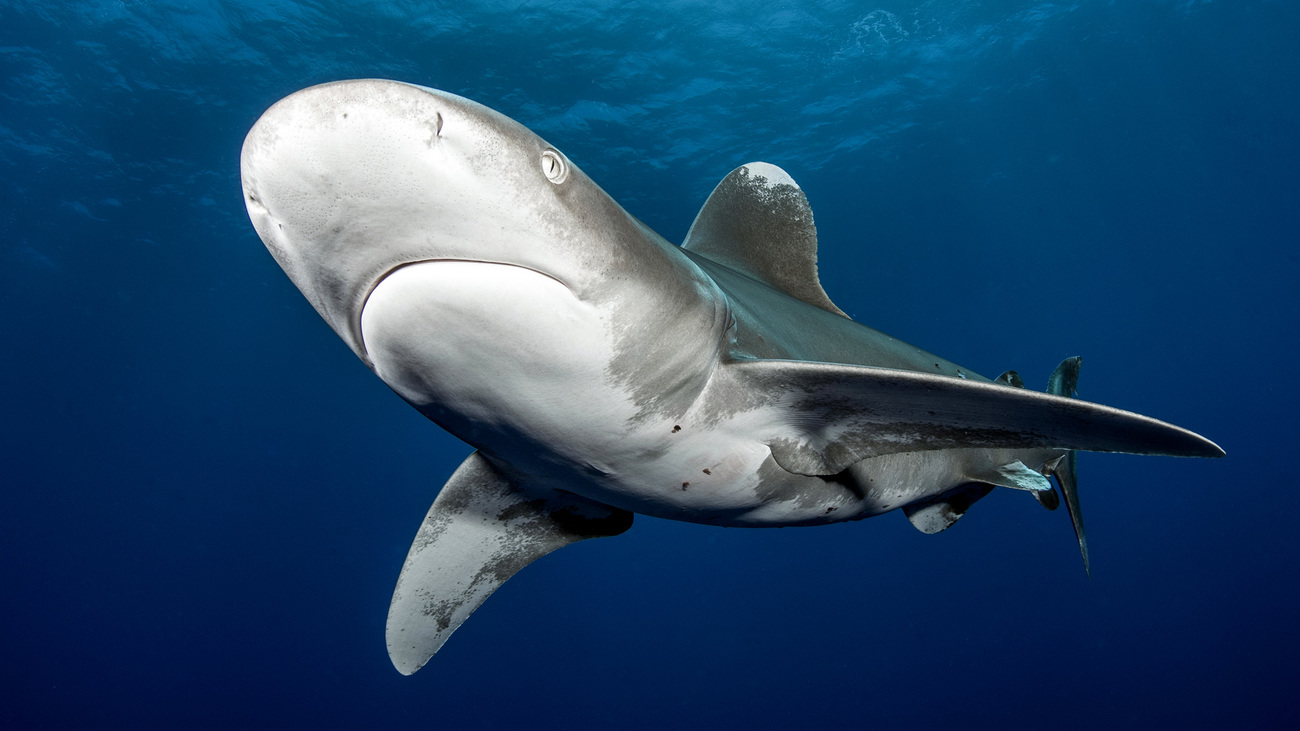Policy Conventions & Agreements - Global
Protection for wildlife & habitats is preserved in global agreementsOceanic whitetip sharks granted international protections
Oceanic whitetip sharks granted international protections

The first of over 70 species of sharks and rays proposed for greater protections, the critically endangered Oceanic whitetip shark, was granted the strongest level of protection today at a UN wildlife summit. The move was welcomed by conservationists from the International Fund for Animal Welfare (IFAW), that say this could save the species from extinction.
Oceanic whitetip sharks have been uplisted at the Convention on International Trade in Endangered Species of Wild Fauna and Flora (CITES), to Appendix I. This level of protection bans all commercial international trade of this species and their products.
These sharks are considered the world’s most threatened open-ocean shark—and remain heavily exploited despite existing protections. CITES trade data has documented significant ongoing trade while recent surveys of major fin trading hubs have shown widespread illegal trade, 70 times the volume of trade reported to CITES, underscoring the urgent need for this uplisting.
“This development has come at the eleventh hour, and couldn’t have come a moment sooner”, said Barbara Slee, Senior Program Manager at IFAW. “This was our last hope for the Oceanic whitetips. For too long, these sharks that have roamed our oceans for millions of years have been slaughtered for their fins and meat. But this listing might just spare them from extinction”.
“Marine conservation has been given a promising head start at today’s negotiations – and we hope that governments will keep up momentum as we go into discussions tomorrow,” said Barbara Slee, Senior Program Manager at IFAW.
These decisions were agreed today at the 20th Conference of the Parties (CoP20) of the Convention on International Trade in Endangered Species of Wild Fauna and Flora (CITES).
The listings reflect robust scientific evidence and widespread international concern.
Discussions will take place to discuss the remaining proposals for sharks, including smooth-hound and tope sharks, manta and devil rays (mobulids), whale sharks, giant guitarfishes and wedgefishes and gulper sharks.
Proposals for shark protections were submitted by a broad coalition of governments, with Panama leading efforts to uplist Oceanic whitetip sharks to Appendix I.
Oceanic whitetip sharks received the required two-thirds majority vote, with 83% in favour.
CITES CoP20 opened in Samarkand, Uzbekistan on November 24th and runs until December 5th. All decisions taken during the Conference need to be endorsed by the final plenary session at the end of the Conference and will take effect 90 days after the Conference ends.
ENDS
Notes to editors
Appendix I: Species threatened with extinction. Trade is allowed only in exceptional circumstances.
Appendix II: Species not necessarily threatened with extinction, but trade must be controlled to avoid utilisation incompatible with their survival.
Appendix III: Species protected in at least one country, which requests international assistance in controlling trade. Changes to Appendix III follow a distinct procedure from changes to Appendices I and II, as each Party is entitled to make unilateral amendments to it.
Full species names
Oceanic white tip sharks (Carcharhinus longimanus)
Press contacts:
Dominica Mack dmack@ifaw.org / +61 460 432 901
Kirsty Warren kwarren@ifaw.org / +44 (0) 7809269747
Related content
Our work can’t get done without you. Please give what you can to help animals thrive.